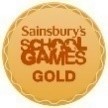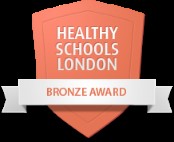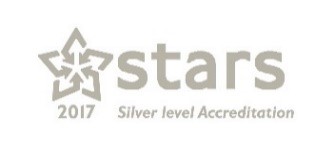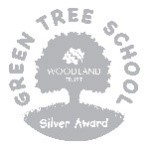Early Reading & Phonics
We believe in a strong reading culture and recognise that a secure foundation in early reading is crucial to a child's success through school.Intent
At All Saints’ CE Primary School, our mission is to fulfil the National Curriculum requirements for Phonics and Early Reading and to deliver a wide and varied educational experience; learning to read and write confidently enables children to access our broad and balanced curriculum, ensuring that they flourish as learners throughout their time at our school. We believe that every child can become a fluent reader and writer; our curriculum ensures that all pupils build on a growing knowledge of the alphabetic code, mastering phonics to read and spell as they move through the school. We value reading as a key life skill and are dedicated to enabling our pupils to become lifelong readers with a passion for books. We continually recognise the key link between reading and writing and know that our school’s ongoing focus on developing and extending children’s reading abilities has a direct, positive impact on their writing skills.
Reading is given a high priority within All Saints’ School. All pupils will learn to read, write, spell and speak at an age-appropriate level and in line with age related expectations. We believe that synthetic phonics provides the foundations of learning to make the development into fluent reading and writing easier. Through daily, systematic and consistent high quality phonics teaching, children will learn to segment words to support their spelling ability and will blend sounds together to read and spell words, applying these skills across the curriculum.
Pupils will become confident and coherent readers; learning to read fluently enables them to fully focus on acquiring strategies to ensure a comprehensive understanding of what they are reading. By the time children leave All Saints’, they will be competent readers who can recommend books to their peers, have a thirst for reading a range of genres, and participate in discussions about books, including explaining their ideas and opinions as well as evaluating an author’s use of language and the impact that this can have on the reader. We believe that our children should not only reach their best academically, but also develop a thirst for knowledge, foster a love of learning and leave our school with exceptional independent learning skills. They will understand the pleasure gained from engaging in a good book and will use it to explore their imagination and creativity.
Implementation
Each curriculum subject has a dedicated subject leader with clear roles and responsibilities. We have a rigorous and well-organised Phonics and Early Reading curriculum based on the National Curriculum that provides many purposeful opportunities for reading and discussion. The role of the subject leader is pivotal in its successful implementation: our Phonics and Early Reading Leader prepares a detailed medium term curriculum map documenting the required progression of knowledge and skills from Reception to Year 2; works closely with the other class teachers during the planning process; and attends courses and initiatives to ensure that the teaching of the subject is kept current, feeding back to and continually supporting other teachers to ensure that they are confident in the skills that they are teaching. All of our staff are role models for the children and model the learning requirements clearly for all lessons in all subjects.
All lessons have clear objectives and steps for success; they use skills- and knowledge-based learning and are effectively planned by class teachers to meet the needs of the whole class, providing challenge for all and taking into consideration special educational needs, pupil premium and more-able learners. To allow our children to develop a strong phonic awareness and effective blending and decoding skills, we use a synthetic phonics programme: Little Wandle Letters and Sounds Revised. This ensures that delivery of lessons is clear and consistent across all year groups. Teachers and teaching assistants are trained via CPD to cater for pupils’ individual needs. Phonics is taught daily in EYFS and Year 1 and it is systematic, engaging, lively and interactive. In EYFS, teachers ensure that phonics is an integrated part of the continuous provision, responding to the needs of each child and making links across the Early Years curriculum as they explore the learning environment. Pupils are taught to decode and blend sounds through a series of phases: by the end of Reception, all children will be secure in phases 2 to 4; and, by the end of Year 1 they will have reached the end of phase 5.
Pupils have phonically decodable books reading books matched to their phonics knowledge which they are encouraged to read regularly at home to ensure that fluency is developed. They also have regular reading sessions with an adult in school to ensure that they are regularly practising and applying their phonics knowledge. These incorporate one-to-one reading and group reading. There are three group sessions every week which focus on different aspects of a text: decoding, prosody and comprehension. Teachers apply the regular Little Wandle summative assessments to inform planning and identify any gaps in learning to date; extra daily reading or Keep-up sessions are then put in place as and when required.
From Year 2, there is a Rapid Catch-up programme for children who are not yet reading at the expected level for their age. It mirrors the main phonics programme but has been created to help children catch up quickly, so has a faster pace. By the end of the Rapid Catch-up programme, children should be reading with enough fluency and accuracy to access the curriculum in class, and to read with enjoyment and understanding.
We pride ourselves in forging strong links with our parents and carers with regard to reading. Home school reading journals are provided from Reception upwards, enabling communication between teachers and families, and we always encourage and welcome parent volunteers for one-to-one reading sessions with children. We believe in a collaborative partnership with parents and carers, which is evidenced by the sharing of learning both in school and at home through the online platforms of Twitter and Google Classroom for the whole school and Tapestry for EYFS.
In addition, each class has a class book to promote reading for pleasure. There is also a well-presented book area in each classroom. These areas offer an inviting opportunity to select a range of books from the library chosen by the pupils along with their teacher. Books are changed each half term in order to offer variety and challenge. Children are allowed to take home a book of their own choice to read at their leisure, again encouraging them to immerse themselves in the joy that a diverse selection of literature brings. The library is an important part of our school; we have worked closely with professionals to create a stimulating environment to nurture children’s love for reading.
At All Saints’, we enhance pupils’ Phonics and Early Reading learning by providing enriching experiences that are memorable for them, including a variety of opportunities for learning outside of the classroom. As a school, we go on educational visits at least once a term, with many of these being English-related trips such as visits to the Arts Depot Theatre. There are also whole-school reading initiatives such as Extreme Reading - where teachers and children shared pictures of themselves reading in unusual locations.
Impact
Children enjoy and have confidence in their phonics learning from an early age. They enjoy listening to adults read and develop a love of reading themselves, progressively developing their skills and knowledge to gain independence and fluency. Children of all abilities are engaged and challenged in Reading sessions and they transfer the skills that they learn to support their writing.
All subject leaders have the knowledge, expertise and practical skill to be able to lead their areas effectively. They are responsible for the curriculum design, delivery and impact in their own curriculum area. Subject leaders and leaders at all levels, including Governors, regularly review and quality assure the subject areas to ensure that they are being implemented well and coverage, breadth and balance is appropriate.
Termly pupil progress meetings between subject leaders, the senior leadership team and teachers ensure that progress is monitored. These feed directly into interventions that take place as required. The synthetics phonics learning resource ensures that all staff teaching phonics have the same expectations of progress and consistently use the correct vocabulary, lesson structure, teaching techniques and resources to ensure that all children’s needs are being met in a fair and consistent way. Children learn to employ a range of strategies to decode unfamiliar words or phrases and, through the teaching of phonics using systematic reading books, the vast majority of children become fluent readers by the end of Key Stage One, with support being put in place for those who need extra help.
Throughout all phonics sessions, ongoing formative assessment of early reading ability takes place; this allows teachers to provide any support necessary to ensure that every child can maximise their reading potential. Children in Reception complete a summative assessment in the summer term to demonstrate their reading comprehension skills; the Rising Stars PIRA papers are used, which provide detailed analysis of the range of skills required to determine attainment and progress made against planned National Curriculum requirements, as well as against the progression of skills and knowledge documented in the curriculum map. Phonic ability is also assessed by statutory assessment: Children in Year 1 sit the phonics screening check in June; any child not passing the check is given intervention assistance and resits in Year 2. The results from all these forms of assessment are combined with the formative assessments to determine children’s progress and attainment and to plan their next steps. Additional ways of assessing the impact of our Phonics and Early Reading curriculum include regular review of images and videos, lesson observations, learning walks by the Subject Leader and/or the SLT and annual reporting to parents of standards across the curriculum Furthermore, parents and carers have a good understanding of how they can support reading at home, and contribute regularly to/monitor home-school reading records.
As a result of our high quality phonics provision, All Saints’ pupils make good progress from their starting points; the vast majority are ready for the next stage of their education as they pass through EYFS, KS1 and into KS2. Our children achieve highly in reading throughout their time with us: at the end of EYFS, results for statutory phonics and reading assessments are high and above the National and Local Authority average; Year One pupils perform consistently above the National and Local Authority average in the phonics screening; likewise, results for statutory reading assessments at the end of Key Stage 1 and Key Stage 2 are also high and above the National and Local Authority average. This impressive attainment reflects how the school’s core focus on phonics, early reading and confident reading equips children with a strong literary foundation upon which they can build, enabling them to apply and develop their skillsets in a wider variety of subject areas both during their time in secondary school and in their lives beyond.
Phonics and Early Reading Resources at All Saints'
We are currently following the DFE approved 'Little Wandle' approach to phonics and early reading. This resource will ensure high quality consistent teaching of phonics and early reading for every child in every classroom and help children to continue to grow a love of reading at school.







